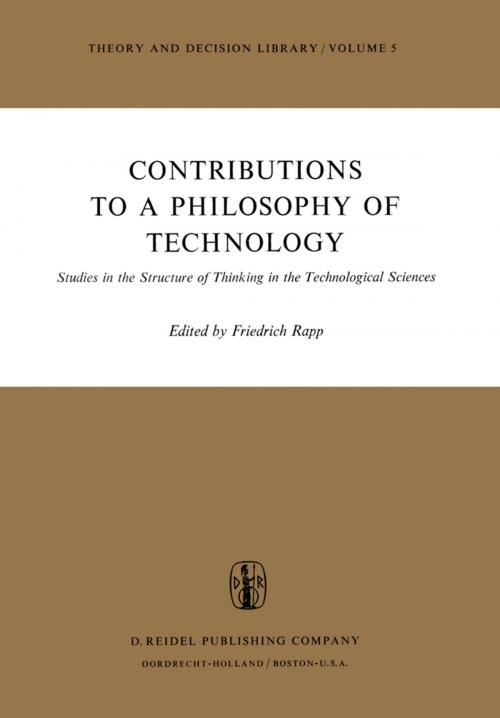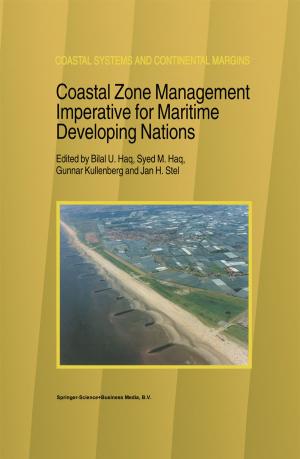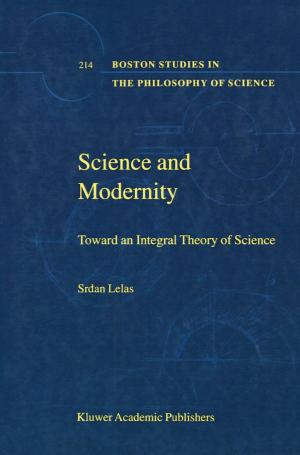Contributions to a Philosophy of Technology
Studies in the Structure of Thinking in the Technological Sciences
Nonfiction, Religion & Spirituality, Philosophy, Reference| Author: | ISBN: | 9789401021821 | |
| Publisher: | Springer Netherlands | Publication: | December 6, 2012 |
| Imprint: | Springer | Language: | English |
| Author: | |
| ISBN: | 9789401021821 |
| Publisher: | Springer Netherlands |
| Publication: | December 6, 2012 |
| Imprint: | Springer |
| Language: | English |
The highly sophisticated techniques of modern engineering are normally conceived of in practical terms. Corresponding to the instrumental function of technology, they are designed to direct the forces of nature according to human purposes. Yet, as soon as the realm of mere skills is exceeded, the intended useful results can only be achieved through planned and preconceived action processes involving the deliberately considered application of well designed tools and devices. This is to say that in all complex cases theoretical reasoning becomes an indispensable means to accomplish the pragmatic technological aims. Hence the abstracting from the actual concrete function of technology opens the way to concentrate attention on the general conceptual framework involved. If this approach is adopted the relevant knowledge and the procedures applied clearly exhibit a logic of their own. This point of view leads to a methodological and even an epistemological analysis of the theoretical structure and the specific methods of procedure characteristic of modern technology. Investigations of this kind, that can be described as belonging to an ana lytical philosophy of technology, form the topic of this anthology. The type of research in question here is closely akin to that of the philosophy of science. But it is an astonishing fact that the commonly accepted and carefully investigated philosophy of science has not yet found its counterpart in an established philosophy of technology.
The highly sophisticated techniques of modern engineering are normally conceived of in practical terms. Corresponding to the instrumental function of technology, they are designed to direct the forces of nature according to human purposes. Yet, as soon as the realm of mere skills is exceeded, the intended useful results can only be achieved through planned and preconceived action processes involving the deliberately considered application of well designed tools and devices. This is to say that in all complex cases theoretical reasoning becomes an indispensable means to accomplish the pragmatic technological aims. Hence the abstracting from the actual concrete function of technology opens the way to concentrate attention on the general conceptual framework involved. If this approach is adopted the relevant knowledge and the procedures applied clearly exhibit a logic of their own. This point of view leads to a methodological and even an epistemological analysis of the theoretical structure and the specific methods of procedure characteristic of modern technology. Investigations of this kind, that can be described as belonging to an ana lytical philosophy of technology, form the topic of this anthology. The type of research in question here is closely akin to that of the philosophy of science. But it is an astonishing fact that the commonly accepted and carefully investigated philosophy of science has not yet found its counterpart in an established philosophy of technology.















